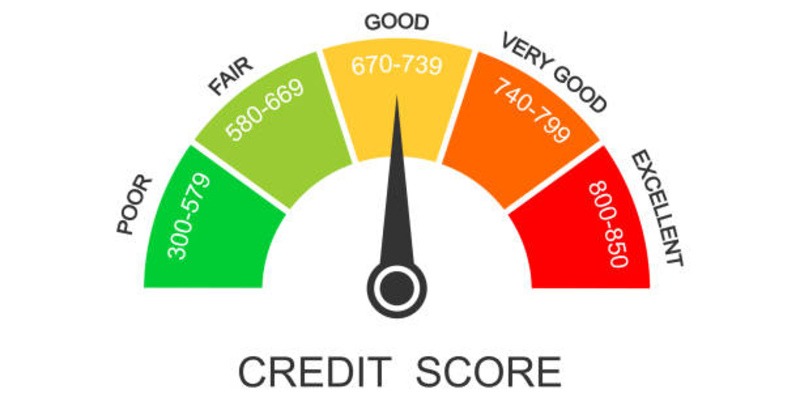Untangling the Web: Navigating the Possibility of Inheriting Debt
Dec 11, 2023 By Susan Kelly
Welcome to the often perplexing world of financial legacies. Today, we unravel a common query that lingers in the minds of many: Can you inherit debt? In this spartan guide, we'll explore the intricacies of debt inheritance, debunk myths, and provide clarity on how it may impact you or your loved ones.
So, fasten your seatbelts as we embark on a conversational journey through the realm of financial responsibilities passed down from one generation to another.
Can You Inherit Debt?
Before we dive into the details, let's establish a common understanding. Debt inheritance refers to the potential scenario where the debts of a deceased individual are transferred to their heirs or beneficiaries. It's a topic that often elicits concern and confusion, and rightly so.
The answer is not a simple yes or no. In many cases, the debts of the deceased are typically paid off from their estate before any remaining assets are distributed to heirs. However, there are nuances to consider, such as the type of debt, the jurisdiction you're in, and the specific circumstances surrounding the deceased's financial affairs.
Types of Debts and Their Impact
Let’s now explore the different types!
Secured Debts
Secured debts, like mortgages or car loans, are often tied to specific assets. In these cases, the heir may need to decide whether to take over the payments, refinance, or surrender the asset to the lender.
Secured debts represent a crucial aspect of the inheritance puzzle. In the case of a mortgage, the heir might inherit not only the property but also the responsibility for the outstanding loan. Options include continuing the mortgage payments, refinancing the loan, or selling the property to settle the debt.
Likewise, with a car loan, the heir may need to assess whether to continue the payments, pay off the loan, or surrender the vehicle to the lender.
Unsecured Debts
Unsecured debts, such as credit card balances or personal loans, may be addressed differently. In some instances, these debts may be discharged if there are insufficient assets in the deceased's estate to cover them.
Understanding unsecured debts is vital for heirs. While credit card balances and personal loans are generally not directly inherited, they are typically paid from the deceased's estate if assets permit. It's crucial to be aware of the limitations and potential implications of these debts on the estate's distribution.
Joint Debts
If you shared a debt with the deceased, as a joint account holder or co-signer, you might bear responsibility for the outstanding balance. Understanding the nature of joint debts is crucial in assessing your potential liability.
Joint debts add another layer of complexity to the inheritance scenario. If you were a joint account holder or co-signed a loan with the deceased, you may inherit the responsibility for the outstanding balance. This emphasizes the importance of understanding the terms and conditions of joint financial arrangements.
The Role of the Deceased's Estate
In most cases, the estate of the deceased is responsible for settling outstanding debts. This includes using assets from the estate to pay off creditors. If the estate lacks sufficient assets to cover the debts, the debts may be considered "unpaid" and may not pass on to heirs.
Understanding the mechanics of the deceased's estate is crucial for heirs. The estate acts as a central player in the debt inheritance process. Assets from the estate are typically used to settle outstanding debts before any distribution to heirs. If the estate lacks sufficient assets to cover the debts, heirs may not be held personally responsible for the remaining balances.
Exceptions to the Rule

While the estate generally bears the burden of debt repayment, there are exceptions. Some jurisdictions may have laws that allow certain debts to transfer directly to heirs, especially if they were co-signed or jointly held. Understanding the laws in your area is crucial in determining your potential liability.
Navigating the exceptions to the rule requires a keen awareness of legal nuances. In certain cases, laws may dictate that specific debts, especially those co-signed or jointly held, can be directly transferred to heirs. Familiarizing yourself with the legal landscape in your jurisdiction is essential to grasp the potential exceptions to the general rule of estate responsibility.
Protecting Yourself from Inherited Debt
If you're concerned about the possibility of inheriting debt, there are proactive steps you can take:
Estate Planning
Encourage your loved ones to engage in comprehensive estate planning. This includes creating a will, specifying how debts should be handled, and designating beneficiaries for assets.
Estate planning is a proactive measure that can significantly impact the inheritance process. Encouraging your loved ones to engage in thorough estate planning ensures that their wishes regarding debt distribution and asset allocation are clearly outlined. This can help streamline the process for heirs and mitigate potential complications.
Understanding Joint Debts
If you share debts with the deceased, know your rights and responsibilities. Consider discussing these matters with a legal professional to fully comprehend your potential liability.
Understanding joint debts is a crucial component of protecting yourself from potential inherited debt. If you share debts with the deceased, whether as a joint account holder or co-signer, seeking legal advice can provide clarity on your rights and responsibilities. This proactive approach helps you navigate potential challenges with confidence.
Seek Legal Advice

In complex situations or when in doubt, seeking legal advice is prudent. A legal professional can guide you through the specific laws in your jurisdiction and help you navigate any potential challenges.
When facing intricate legal scenarios related to debt inheritance, seeking professional guidance is paramount. Legal professionals can provide personalized advice based on the laws and regulations applicable to your situation. Their expertise can help you make informed decisions and navigate potential complexities with confidence.
Conclusion
As we conclude this journey into the realm of debt inheritance, remember that knowledge is your greatest ally. While the prospect of inheriting debt may seem daunting, understanding the nuances and taking proactive steps can empower you to navigate these financial intricacies.





